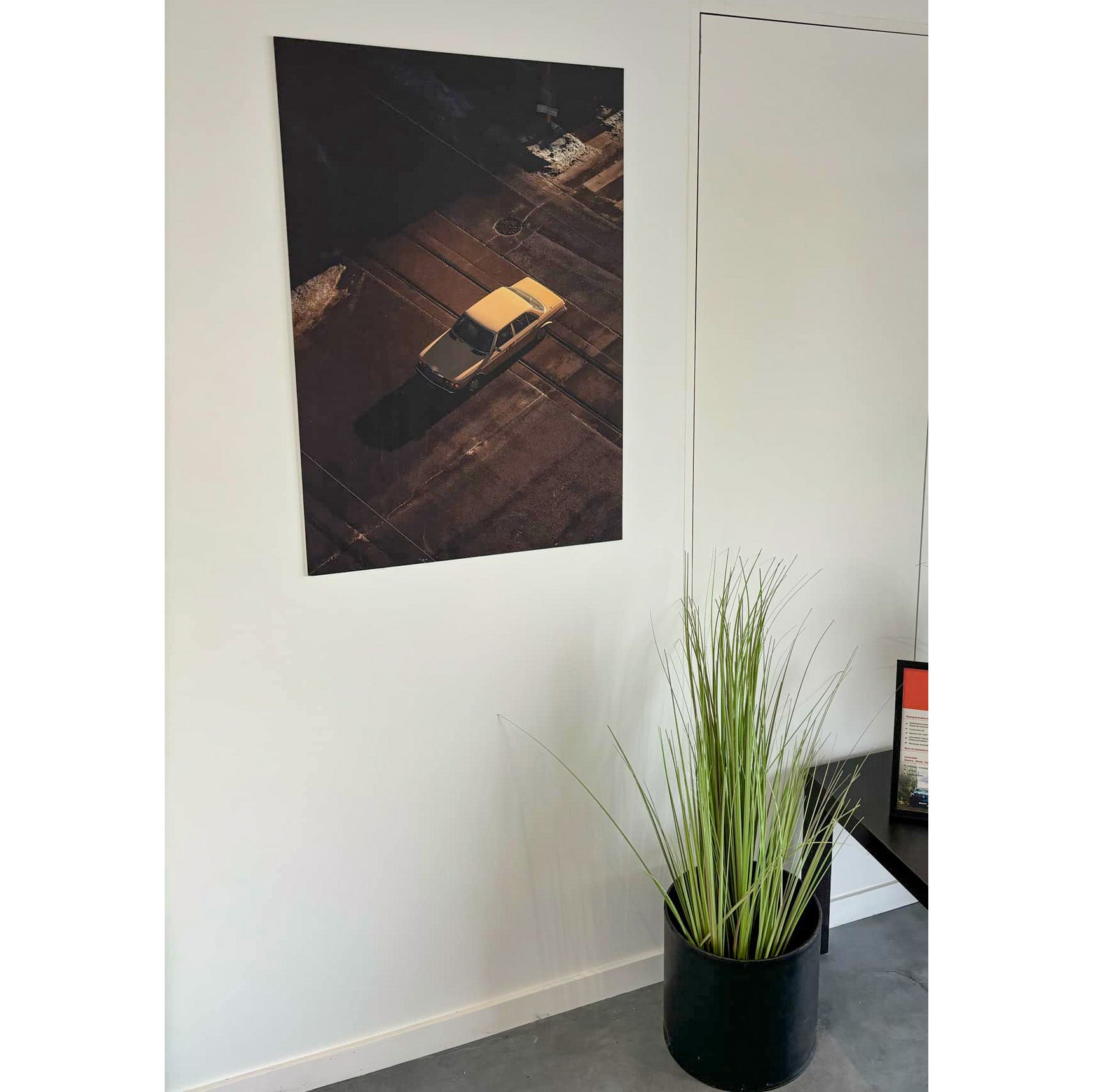Art print | Bacchus - Charles André van Loo


View from behind

Frame (optional)
In the rich and captivating universe of baroque art, the artwork "Bacchus" by Charles André van Loo stands out for its brilliance and depth. This canvas, which celebrates the Roman god of wine and festivities, transports us to a world where joy and exuberance blend with subtle elegance. The art print Bacchus - Charles André van Loo allows us to appreciate not only the artist's technical mastery but also how he manages to capture the very essence of classical mythology. Contemplating this piece, the viewer is invited to partake in a timeless celebration, where beauty and pleasure are expressed through vibrant colors and harmonious forms.
Style and uniqueness of the work
Charles André van Loo's style, imbued with baroque tradition, is characterized by dynamic compositions and striking play of light. In "Bacchus", the artist uses a rich palette, where golden hues and shades of red create a warm and festive atmosphere. The figures are depicted with great sensuality, highlighting the voluptuous curves of the bodies and the joyful expressions of the characters. The arrangement of elements in the canvas, where Bacchus is surrounded by nymphs and satyrs, evokes a scene of celebration where nature and man unite in perfect harmony. Mastery of perspective and a sense of movement give the artwork a vitality that seems almost tangible, allowing the viewer to feel the excitement of this moment of celebration.
The artist and his influence
Charles André van Loo, a major artist of the 18th century, established himself as one of the most prominent painters of his time. Trained in the ateliers of great masters, he developed a personal style that combines Italian influences with French sensibility. Van Loo created numerous works for the court of Louis XV, and his talent allowed him to build a solid reputation within the artistic community. His approach to mythology, often tinged with a touch of lightness and humor, inspired many contemporary and later artists. Through Bacchus,

Matte finish

View from behind

Frame (optional)
In the rich and captivating universe of baroque art, the artwork "Bacchus" by Charles André van Loo stands out for its brilliance and depth. This canvas, which celebrates the Roman god of wine and festivities, transports us to a world where joy and exuberance blend with subtle elegance. The art print Bacchus - Charles André van Loo allows us to appreciate not only the artist's technical mastery but also how he manages to capture the very essence of classical mythology. Contemplating this piece, the viewer is invited to partake in a timeless celebration, where beauty and pleasure are expressed through vibrant colors and harmonious forms.
Style and uniqueness of the work
Charles André van Loo's style, imbued with baroque tradition, is characterized by dynamic compositions and striking play of light. In "Bacchus", the artist uses a rich palette, where golden hues and shades of red create a warm and festive atmosphere. The figures are depicted with great sensuality, highlighting the voluptuous curves of the bodies and the joyful expressions of the characters. The arrangement of elements in the canvas, where Bacchus is surrounded by nymphs and satyrs, evokes a scene of celebration where nature and man unite in perfect harmony. Mastery of perspective and a sense of movement give the artwork a vitality that seems almost tangible, allowing the viewer to feel the excitement of this moment of celebration.
The artist and his influence
Charles André van Loo, a major artist of the 18th century, established himself as one of the most prominent painters of his time. Trained in the ateliers of great masters, he developed a personal style that combines Italian influences with French sensibility. Van Loo created numerous works for the court of Louis XV, and his talent allowed him to build a solid reputation within the artistic community. His approach to mythology, often tinged with a touch of lightness and humor, inspired many contemporary and later artists. Through Bacchus,









